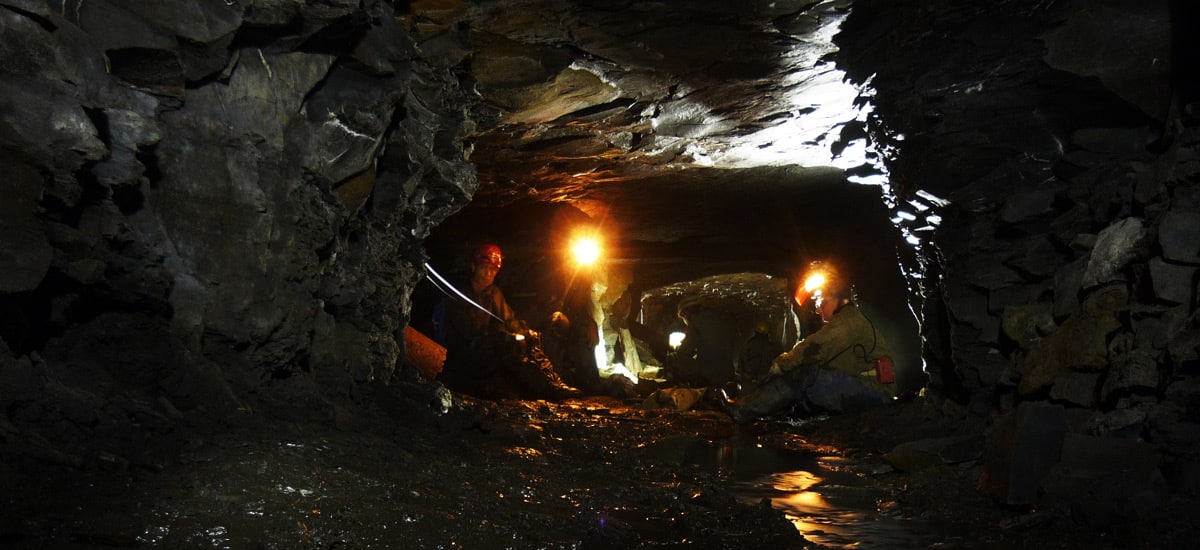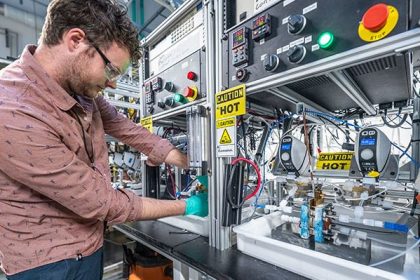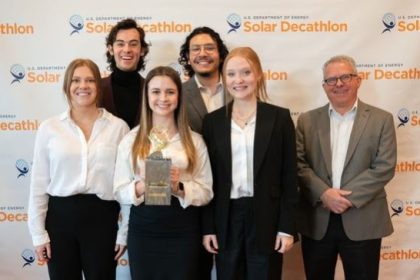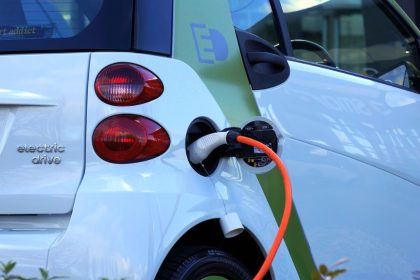For Coal Miners With Black Lung Disease, New Acts Offer Hope

WASHINGTON — The phone was quiet as Danny Fouts, a 48-year-old retired coal miner with a thick Kentucky accent, tried to take another breath. The ventilator gushed out more oxygen into his body, helping his lungs to function.
His lungs were damaged from inhaling dust after 20 years of working in the coal mines of Kentucky.
“I worked underground. You had to crawl around … all day,” said Fouts.
“I started having breathing difficulties, like an infant sitting on my chest, but still had to work,” continued Fouts.
Each day, for eight hours, Fouts would use a big, old chainsaw-like device to ‘get on in’ and undercut the coal, creating a billowing cloud of dust.
Like his father and grandfather before him, Fouts could not be pulled away from the good pay and tough work of the coal mining industry.
Also like his father and grandfather, he developed black lung disease, sometimes called pneumoconiosis, which causes scarring of the lungs and impairs the ability of an individual to breathe due to continued exposure to coal dust.
“Particles once inhaled into the lung don’t get broken down. Over time, depending on the person’s exposure, it’s an inflammation of the lung that can ultimately cause some thickening or fibrosis of the lung tissue,” said Albert Rizzo, who serves as chief medical officer for the American Lung Association, during a phone call with The Well News.
“It is a disease that has to be watched and [we have to] ensure people are screened for it, but beyond that there is no treatment,” continued Rizzo.
Several federally funded clinics in coal mining regions have black lung screening programs for miners, and there is a mobile screening unit which the Centers for Disease Control and Prevention’s National Institute for Occupational Safety and Health frequently brings into coal mining regions.
The CDC/NIOSH mobile unit uses periodic lung function testing, X-rays, respiratory health assessment questionnaires, and other screening tools to evaluate miners for black lung disease.
“If a miner’s X-ray is classified as having black lung, the miner is confidentially notified by NIOSH via mail. Miners with a black lung determination can request to work in a less dusty area of the mine,” said researchers from NIOSH’s Respiratory Health Division, in an email to The Well News.
One in 10 underground coal miners who have worked in mines for at least 25 years were identified as having black lung, according to a 2018 report from NIOSH.
NIOSH said only a fraction of active coal miners participate in the screening program, and that miners are developing advanced cases of the disease at younger ages.
Fouts is an advocate for coal miners with black lung to apply for The Federal Black Lung Benefits Program for managing their conditions. He’s heard from many miners within his network that they have been denied federal health benefits and do not reapply afterwards.
“I went to Washington, D.C., two years ago with a group, and talked to Mitch McConnell about the Black Lung Benefits Act. He came around and reassured us that we wouldn’t lose benefits,” said Fouts.
The Federal Coal Mine Health and Safety Act , which included the Black Lung Benefits Act, was established by Congress in 1969 as a way to provide monthly payments and medical benefits for coal miners who developed severe disabilities from black lung disease.
“There is a set limit to [how much monthly payment you can get.] Nothing has increased,” said Fouts.
The federal standard benefit amount a miner can collect is $708.90 in federal benefits for someone with no dependents, $1,063.30 for someone who has one dependent, and $1,240.50 for someone who has two dependents.
Fouts received his black lung diagnosis in 2002, but continued to work his job in mines, finding immense love for his work and being unable to get by without the financial stability.
That was until his disease became too severe to work in 2015. At that time, he filed a claim to begin collecting both federal and state benefits for black lung disease, which is offset for miners approved for both.
“Miners like myself are already retired and drawing from black lung benefits, but your younger ones really don’t understand what is going on,” said Fouts.
Rebecca Shelton is a lawyer from the Appalachian Citizens’ Law Center, a non-profit law firm which has represented over 400 coal miners, and their families on issues of black lung and mine safety since the 1960s.
“There are miners who have symptoms prior to full disability, as well as miners that may continue to keep working in the mines, even after they have symptoms of the disease, because they are not ready to give up their financial stability,” said Shelton, during a phone call with The Well News.
“Most often, an individual will reapply as their disease progresses if they were previously denied benefits on the grounds that their medical evidence was not yet sufficient to establish disability,” continued Shelton.
Data from the Department of Labor for FY 2020 shows that since 1973 there have been 718,123 federal black lung benefit claims filed, with the highest number of claims filed in Pennsylvania, West Virginia and Kentucky.
Of the 117,330 claims filed in Kentucky, only 4,579 have been accepted with benefits paid.
Shelton said that a specific type of dust has been contributing to higher rates of black lung disease in the Central Appalachian Region. The information was also evidenced by a study published in Annals of the American Thoracic Society in 2021.
The study confirms that 20% of long-time miners in Appalachia now have black lung disease — the highest rate in 25 years.
“We have an epidemic of black lung disease in our area, and rates have increased in recent years with silica dust in our region, and exposure of miners to this dust,” said Shelton.
“We have young miners who are in their 30s and 40s who are sick with this disease,” continued Shelton.
Shelton said that a standard went into effect in the state to try to protect workers by setting an exposure limit.
“That went into effect in 2016, but it is not an acceptable silica dust exposure limit and urgently needs to move forward at the Mine Safety and Health Administration,” said Shelton.
The Appalachian Citizens’ Law Center has been working to ensure that the Black Lung Disability Trust Fund continues to be filled up and does not deplete.
The fund pays out the interim monthly disability benefits and health care benefits to miners, and is funded by an excise tax per ton of coal sold.
“Congress allowed the excise tax that funds the trust fund to get cut in half since 2021, collecting 55% of what we historically collected from the industry since Jan. 1 of this year,” said Shelton.
“There was a four-year extension of the excise tax in the Build Back Better legislation, but it did not go forward,” said Shelton.
The Trust Fund is already approximately $5 billion in debt, and Shelton said that several coal mine operators went bankrupt and have also put their liability on the trust fund.
The Black Lung Benefits Disability Trust Fund Solvency Act of 2022, H.R. 6462, was introduced by Rep. Bobby Scott, D-Va., in January of this year.
The act would extend the black lung excise tax rate to $1.10 per ton for underground coal and $0.55 per ton for surface coal for 10 years through Dec. 31, 2031. This will help keep the trust fund solvent and remove future pressure to cut benefit eligibility for coal miners or their families.
In the Senate, the Black Lung Benefits Improvement Act, S.4511, was introduced by Sen. Mark Warner, D-Va., Robert Casey, Jr., D-Pa., Sherrod Brown, D-Ohio, Joe Manchin, D-W.Va. and Tim Kaine, D-Va., on July 13.
The act would help miners and their survivors access legal representation, ensure benefits are not eroded due to inflation, reduce the time for processing claims, and protect taxpayers from taking a hit when a self-insured coal company goes bankrupt and cannot pay black lung claims.
Shelton said that the Black Lung Benefits Improvement Act has been introduced in three subsequent congressional sessions, but has not even made it through a committee hearing and vote.
“The biggest hurdle for a case is often after a miner’s claim has been approved by the DOL and once they seek to hold a coal operator responsible for paying the benefits. In almost all cases, the coal operator will appeal the case which will result in a years-long process of a case going before an administrative law judge,” said Shelton.
“During this time, a miner is receiving benefits, paid for by the Federal Trust Fund, but if, ultimately, they do not win their case in front of the ALJ, those benefits could be recouped by the DOL,” continued Shelton.
Alexa can be reached at [email protected]
























